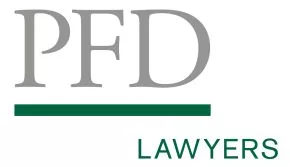On November 7, 2016, the Court of Appeal delivered a judgment that establishes the limits of jurisdiction of cities in the creation of conservation areas (2646-8926 Québec inc. v. Lorraine (Ville de), 2016 QCCA 1803). The facts in this case are as follows.
In 1989, 2646-8926 Québec inc. (hereinafter 2646-8926) purchased land in the city of Lorraine to build a real estate project. At the time it was acquired, the property was located in a residential area. In 1991, the city rezoned the land. With the change, approximately 60% of the plot owned by 2646-8926 became a conservation area, which blocked the residential project on a portion of land.
It was only in 2001 that the landowner (2646-8926) noticed that the city had built walking and skiing trails, benches and stairs on the property. Shortly after, the landowner became aware of urban regulation U-91 that rezoned most of the land. In 2007, he initiated legal proceedings in Superior Court to revoke the bylaw, which deprived him of his right to use the land.
The Court of Appeal allowed the appeal of the Superior Court decision and stated that:
"[10] [...] the rezoning and occupation with the installation of amenities constitute a disguised expropriation since the appellant is deprived of the use of the land, which, as a result of the changes [rezoning], is exclusively for public utility."
[Translation]
The Court was of the opinion that while the city had not acted without jurisdiction, it had unreasonably used its powers when it did not provide financial compensation for land that was now meant for public use.
Article 952 of the Civil Code of Québec states
that "no owner may be compelled to transfer his ownership
except by expropriation according to law for public utility and in
return for a just and prior indemnity."
"[13] The City clearly failed to comply with this principle by proceeding with an expropriation under the guise of a zoning change. In doing so, it abused its jurisdiction. This abuse takes away all commercial value from the appellant's land. [...]"
[Translation]
In sum, the Court of Appeal recognized that the city could adopt a bylaw to create a conservation area. However, should it do so, it must provide compensation to the landowner who loses the use of the property.
It is important to note that the city of Lorraine filed a request for appeal to the Supreme Court of Canada on January 9, 2017. The matter is therefore not yet resolved.
About Mackrell International - Canada - Prévost Fortin D'Aoust is a Quebec based business law firm with offices in Montreal, Saint-Jérôme, Boisbriand, Sainte-Agathe-des-Monts and Laval, and a member of Mackrell International. Mackrell International - Canada is comprised of four independent law firms in Alberta, British Columbia, Ontario and Quebec. Each firm is regionally based and well-connected in our communities, an advantage shared with our clients. With close relations amongst our Canadian member firms, we are committed to working with clients who have legal needs in multiple jurisdictions within Canada.
This article is intended to be an overview and is for informational purposes only.


